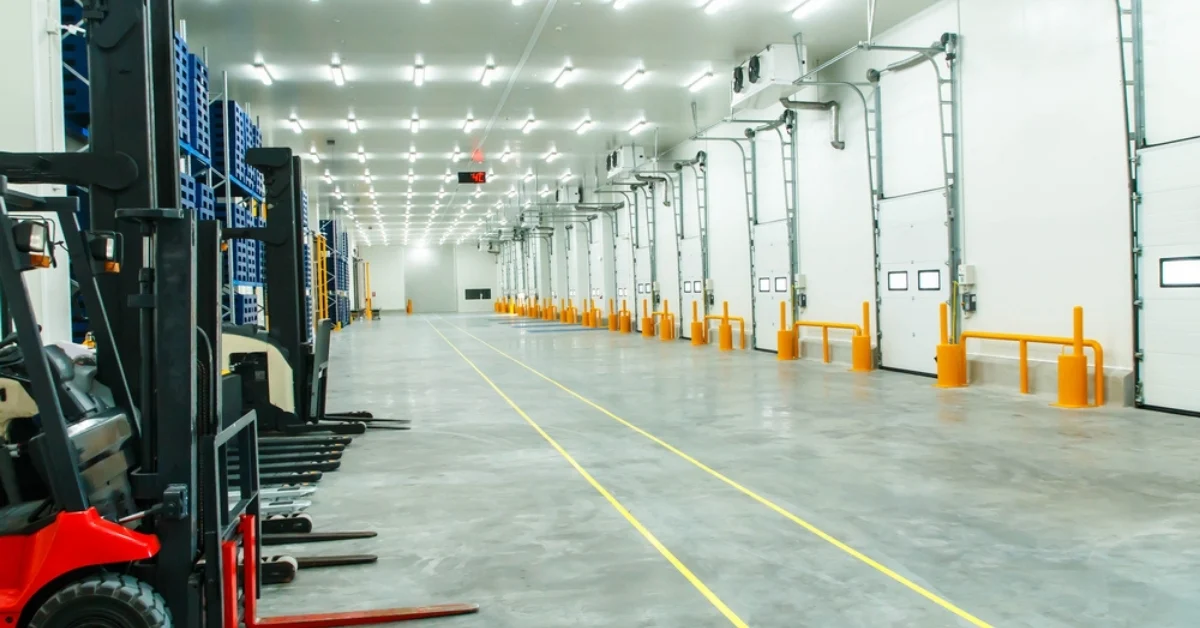Before going into the topic of certifications necessary for the cold chain sector, it is only right to look into the concept of large-scale distribution.
What is large-scale distribution exactly? What are we talking about when we refer to the cold chain?
We have all heard of Large Scale Distribution, but if someone were to ask us, would we be able to define exactly what it is? It specifically concerns the sale of consumer goods, food and not. Basically, when we talk about the large-scale distribution, we are referring to the concentration of many points of sale in an area, whose management, however, is at the head of a single brand.
On the other hand, what do we mean by cold chain?
It is an expression that indicates the maintenance of frozen products at a constant temperature or below -18°C, from the time of production, to sale, to transport, to storage up to display in the points of sale.
Maintaining the cold chain throughout the process is very important, as it guarantees the quality of the products.
In particular in the food sector it is necessary that the products never defrost, as later refreezing would not maintain the nutritional and organoleptic properties of the food.
We want to start right from the maintenance of the cold chain in the food sector, to explain, with precision, what certifications are necessary to guarantee this process.
What food certifications are compulsory in large-scale distribution?
To sell in large-scale distribution, the compulsory certifications are:
- BRC Global Standards Certification
- IFS Certification
The objective of these two types of certifications is to ensure that the company is able to offer adequate safety and quality standards, as required by the agri-food market, for the sale of fruit, vegetables, citrus fruits and other products to the public.
Having these two certifications is also important for ensuring the efficiency of the company, more oriented towards sharing criteria of modernity and responsibility towards customers.
In addition to these first two certifications, it is also necessary to include the Global GAP - Good Agricultural Practice -, whose objectives concern the implementation of a protocol of actions, recommended for improving and optimising the internal organisation, management, production and business in its entirety.
Obviously, ISO 14001, ISO 9001 - latest version - and BS Ohsas 18001 certification, designed to demonstrate the acquisition of efficient "work systems" within the company, are in addition to those mentioned above.
But the issue of certifications for large-scale distribution is not limited only to the food sector, as at the basis of the entire discussion thus far, there is obviously the need to build spaces where, indeed, the cold chain can be maintained and this is possible if certain measures are also applied to the buildings
What are the building-related certifications for the cold chain, which concern the large-scale distribution?
The certifications, respectively concerning buildings for the maintenance of the cold chain in large-scale distribution, can apply to different areas, namely:
- The entire building;
- Part of the building;
- the single product to build the building.
Respectively, for example, Isopan intervenes on the very last point with its Isofrozen and Isofrozen Htsandwich panels, which are specifically intended for cold environments.
According to UNI EN 12114, Isopan has tested these products for permeability to air under pressure/depression. Additionally, regarding the food sector, we can offer metal supports suitable for occasional contact with food.
On this topic, if you are interested in knowing the advantages for the protection of food safety in refrigerated warehouses, read the article "INSULATING PANELS FOR COLD ROOMS: FOR FOOD SAFETY”
Regarding the first and second points, for example, we can focus on the issue of safety in the workplace for the food industry and cold rooms.
Both the employer and the worker have the duty to follow the indications of the Consolidated Law on health and safety in the workplace, i.e. Legislative Decree 81/2008. This provision requires a risk assessment, the appointment of a Professional risk prevention manager and a Worker’s safety representative, a fire-fighting team, first aid officers, a company physician and Mandatory training for all employees.
In terms of safety, however, inside the controlled atmosphere cold rooms, the regulatory reference is Presidential Decree 177/2011.
Regarding certifications, it is important to look into the point concerning the fire risk, which can also include refrigerated warehouses The choice of materials to build part of the building is certainly very important for avoiding this danger.
When choosing what technological equipment to use, a minimal presence of flammable substances such as ammonia, usually used as a liquid for refrigeration systems, can be expected.
Furthermore, the careful design of the materials used for the construction of the temperature-controlled warehouse can affect the reaction and fire resistance performance of the building, helping reduce the fire risk.
Isopan Isofrozen/Isofrozen HT panels can reach a fire reaction class of up to BS1D0 (the best achievable performance for this type of materials) and can contribute to the fire resistance of the building.
To this regard, the Isofrozen/Isofrozen HT line of insulating panels offers multiple advantages to protect food safety in refrigerated warehouses, such as:
- Very high thermal insulation thanks to the LEAF technology;
- Excellent air tightness;
- Excellent fire performance;
- Attention to sustainability thanks to LEAF technology, applicable to all Isofrozen panels with polyurethane foam.
If you want to learn more about all of the advantages of insulating panels for cold rooms, read the article INSULATING PANELS FOR COLD ROOMS: FOR FOOD SAFETY.
Certainly, at the end of our article, what we can confidently affirm is that, regarding buildings, in the cold chain, it is necessary for the regulations to be observed right from the construction phase.


